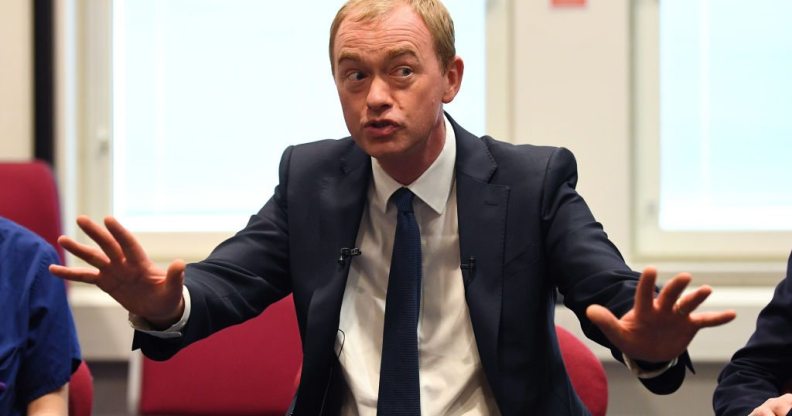Likely Lib Dem leader Sir Vince Cable says Tim Farron didn’t handle gay rights question ‘very well’

Tim Farron (Photo by Leon Neal/Getty Images)
Sir Vince Cable, who is likely to become the next leader of the Liberal Democrat party has said that former leader Tim Farron did not handle questions about gay sex “very well”.
The former business secretary, Sir Vince, addressed the mishap in which Farron repeatedly failed to answer the question of whether or not he believed gay sex was a sin.

Farron faced huge backlash after he dodged the question dozens of times.
After numerous interviews, he finally answered the question with BBC and clarified that he did not believe gay sex is a sin.
However, the damage was done to Farron and the Lib Dem campaign and he nearly lost his Cumbria as his majority dropped from 8,000 to just 777 votes.
Sir Vince addressed Farron’s juggling act between his religion and equality on Sky’s Sophy Ridge on Sunday.
“He did, as he himself acknowledged, not handle that whole issue very well at reconciling his own personal faith with his public positions on gay rights and other issues.
“His position was a perfectly fair one. A lot of people have private views deriving from their religion, but they have to put these to one side when they’re enacting public policy,” Sir Vince said.
He added that Farron had done the right thing to step down from the leader position.
“He acknowledged that he hadn’t got that right and that’s why he stood down.”
Farron resigned as the leader citing a “difficult campaign”.
At the time, he said: “The consequences of the focus on my faith is that I have found myself torn between living as a faithful Christian and serving as a political leader.”
In a Q&A with PinkNews before the election, Mr Farron said: “I am a proud advocate of LGBT equality and have a track record that demonstrates that.
“Initially I chose not to speak out on my views on gay sex as I really didn’t think anyone would want the General Election campaign to turn into a theological debate.”

